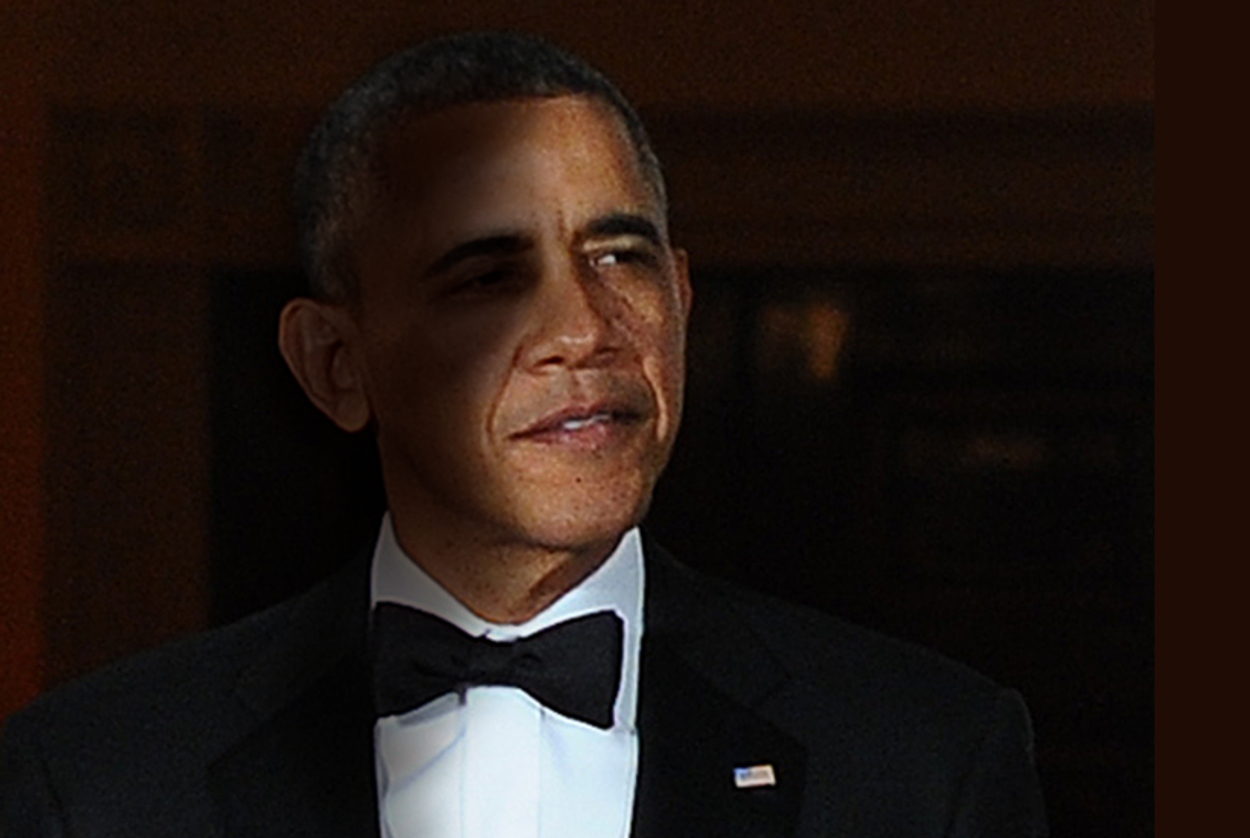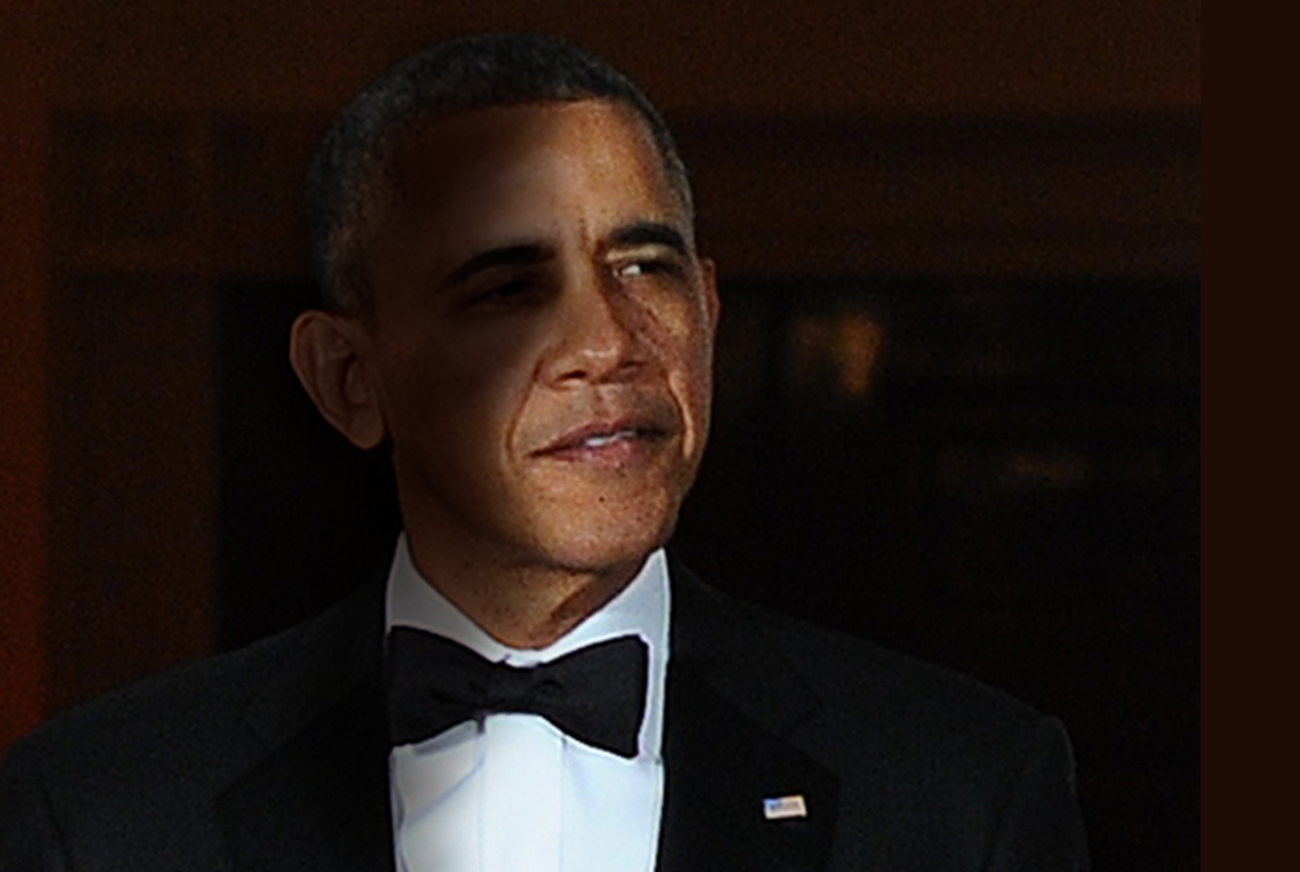The Godfather’s Guide to the Middle East
Everything you need to know about world turmoil today—from Obama to Assad to ISIS—is in the ethos of the Corleone family




Just when President Barack Obama thought he was out of the Middle East, ISIS pulled him back in. Or at least that’s how the aging Michael Corleone put it in The Godfather: Part III when he was trying to move into legitimate business after a lifetime of organized crime. For as every American male knows, everything you need to know about the world is contained in The Godfather.
What Sun Tzu was to Chinese kings and Machiavelli was to Renaissance princes, The Godfather is to post-World War II middle-class America. For over 40 years now, the classic three-part story of the Corleone family, a tale of American immigrants and ruthless criminals, has served as a compendium of political and strategic wisdom for college-educated Americans, whose lives grow ever more distant from the day-to-day violence that shaped the lives of their ancestors and still shapes the political culture of most of the world today.
And that’s the point. What makes The Godfather movies central to American culture is not that they are so rich with rare jewels of wisdom and insight, but that they present a relatively accurate picture of the way the rest of the world still experiences reality. Or to put it another way, if most American males picture themselves as Michael, the talented, thoughtful yet ruthless former war hero, played by the brooding and beautiful 30-year-old Al Pacino, the world’s most dangerous spots are actually run by men much more like Santino, the eldest Corleone boy, whose stars are ruled only by murder, sex, and food.
Indeed, the Middle East is a wilderness of Sonny Corleones, which makes The Godfather epic an especially useful instrument in understanding the region. So, let’s look at recent developments like a Corleone would:
Monday’s American airstrikes on ISIS positions no doubt surprised a number of regional players, both adversaries and allies. After Obama’s reluctance last year to strike Assad targets, it’s likely they had assumed that this White House has no stomach for military operations and is on the way out of the Middle East. Or as Moe Greene told Michael Corleone in the original Godfather movie: “You’re all done. The Corleone Family don’t even have that kind of muscle anymore.”
As fans of the film will recall, Greene, based on real-life gangster Bugsy Siegel, would soon and unhappily learn that the Michael was not afraid to flex his muscle. Greene’s fatal flaw was not simply in underestimating a wounded but still-powerful player but in pronouncing his assessment out loud. ISIS might have avoided getting on Obama’s target list had the organization simply been a little more tight-lipped about its goals until it was better situated to realize them. As Don Vito warns Sonny, never tell anybody outside the family what you’re thinking.
Here’s something Obama might learn from Michael, taken from the scene in The Godfather: Part II where he tells Hyman Roth (played by the flawless Lee Strasberg) at the Jewish mobster’s birthday party in Havana how he “saw a strange thing today.” He watched as one of the Cuban rebels “pulled the pin on a grenade,” says Michael, and “took … the captain of the command with him.” “What does that tell you?” Roth asks. “They could win,” says Michael.
For three and a half years now Obama has virtually ignored the Syrian opposition, first when it protested peacefully against Bashar al-Assad and then when it picked up arms in self defense. His rationale, as he has said repeatedly (most recently last month), is that the Syrian rebels are “former doctors, farmers, and pharmacists,” and the idea they could defeat Assad had they been armed earlier is “a fantasy.”
However, even without U.S. arms, this rag-tag citizens army has managed to hold its own not only against Assad’s military and paramilitary forces but also against Hezbollah, Iran’s Quds Force, Iranian-backed Iraqi militias, as well as other Shiites drawn from Afghanistan and Yemen in addition to Russian arms and political and diplomatic support. In other words, with real U.S. backing, the rebels might well have toppled Assad already.
Hyman Roth couldn’t see how fragile the Batista government was because he had too much invested in its survival. Similarly, Obama’s Middle East policy hinges on his belief in a grand bargain with the regime in Tehran that will not only settle the Iranian nuclear issue but also ensure regional stability by balancing the clerical regime against traditional U.S. allies like Israel and Saudi Arabia.
You can’t entirely blame Obama if he thinks he’s got a partner in Hassan Rouhani, the self-styled moderate president of Iran. You’ll recall that Don Vito made the same error in The Godfather, confusing the front man for the real power. “Tattaglia is a pimp,” Don Vito tells Tom Hagen late in the movie when he realizes his mistake. “But I didn’t know until this day that it was Barzini all along.” To translate that back into Middle East terms, Rouhani is the pimp, and the guy calling the shots on the ground, from Beirut through Damascus and all the way to Baghdad, is Quds Force commander Qassem Suleimani, who works for Ayatollah Khamenei—not Rouhani.
Assad is no doubt aware of the real center of power, which is why he, in turn, will be watching his back with his Iranian allies. As Frank Pentangeli might have told Assad, “Your father did business with the Iranians, your father respected the Iranians, but your father never trusted the Iranians.” And indeed, Bashar’s father Hafez, while allied with the Iranians, was careful not to do what his son has done and put himself in the position of junior partner—or chip to be traded in for a better deal. If you’re a Corleone, all the moves that Iran and the United States are making in tandem these days in Iraq and Lebanon are making you nervous. As Vito tells Michael shortly before he dies, “women and children can be careless, but not men”—especially not regime chiefs in the Middle East.
The one piece of unsettled business in the Levant is the Syrian civil war. Obama doesn’t want to commit more resources to a conflict in the Middle East, but this is a humanitarian catastrophe, advisers like Susan Rice and Samantha Power tell him, that will leave a scar on his presidency. The American president wants it to go away. For a price, the Iranians say, they can make that happen. Stop fighting us on the nuclear weapons program. We’ll agree to a sunset clause that will expire long after you’ve left office. And you won’t have to worry about Bashar al-Assad anymore. If he was a Corleone, Assad would know that the guy setting up the meeting with the Iranians is the one who’s going to betray him—it’s the smart move.
***
Like this article? Sign up for our Daily Digest to get Tablet Magazine’s new content in your inbox each morning.
Lee Smith is the author of The Consequences of Syria.
Lee Smith is the author of The Permanent Coup: How Enemies Foreign and Domestic Targeted the American President (2020).